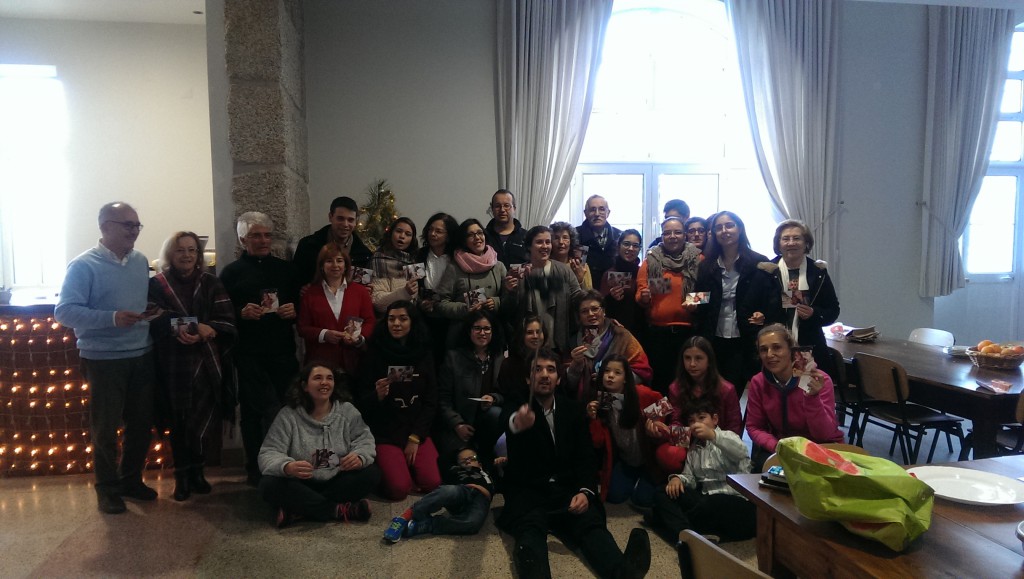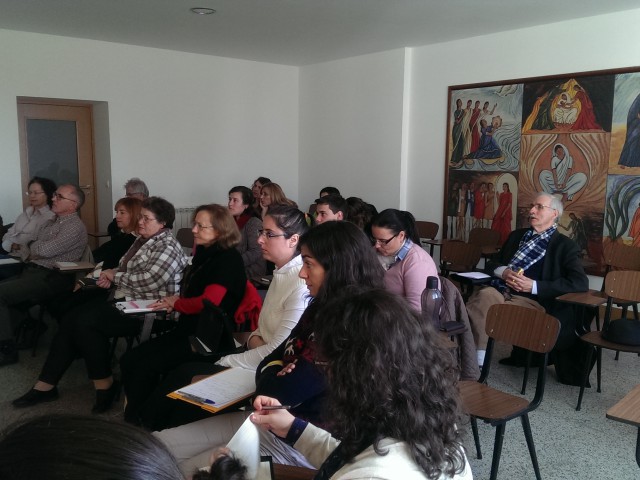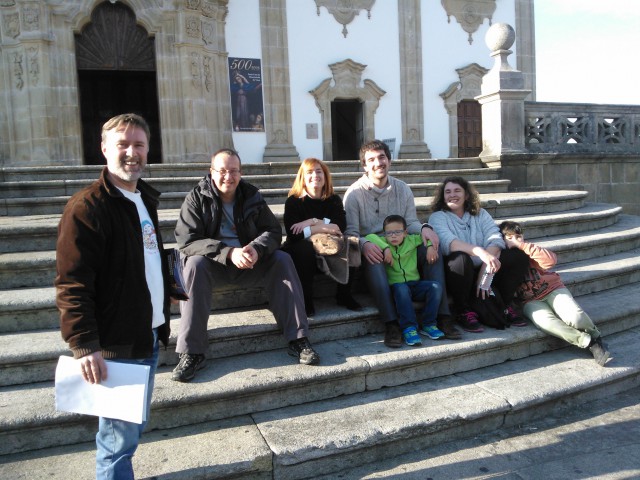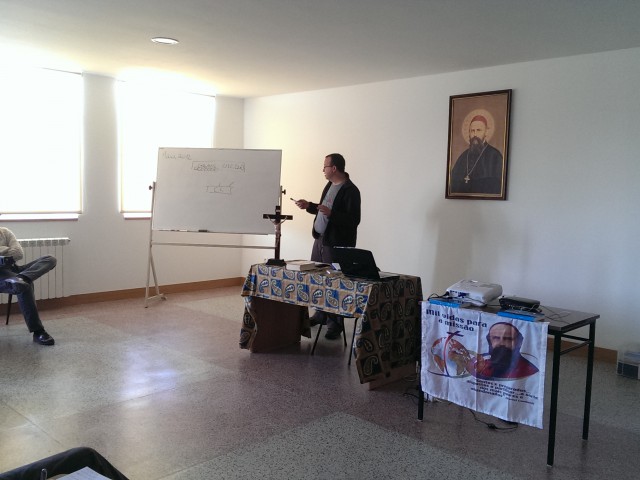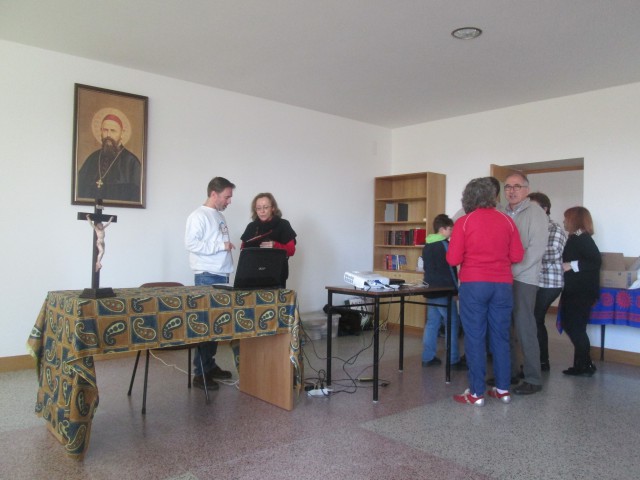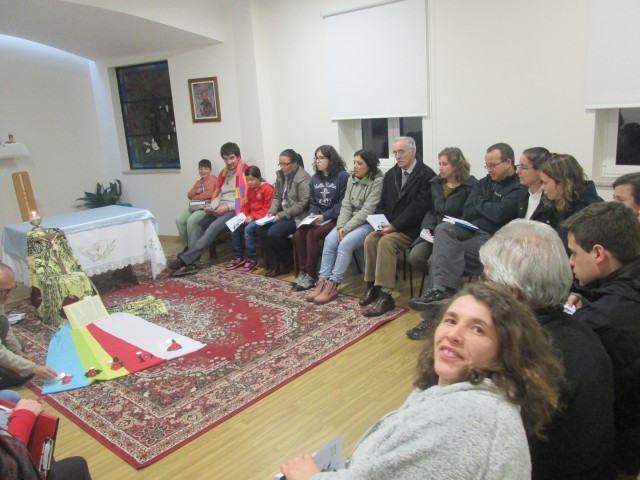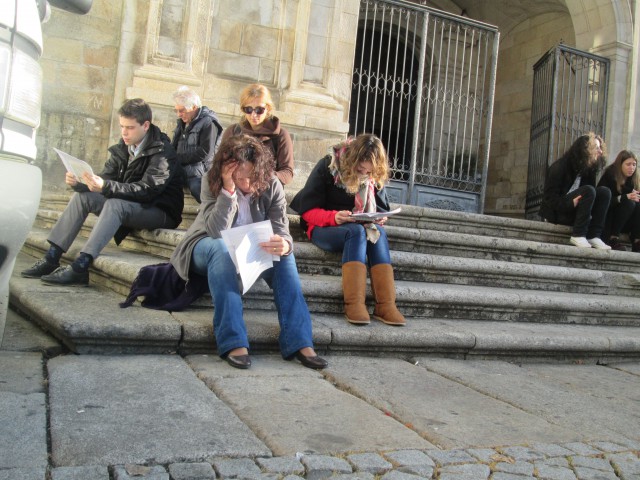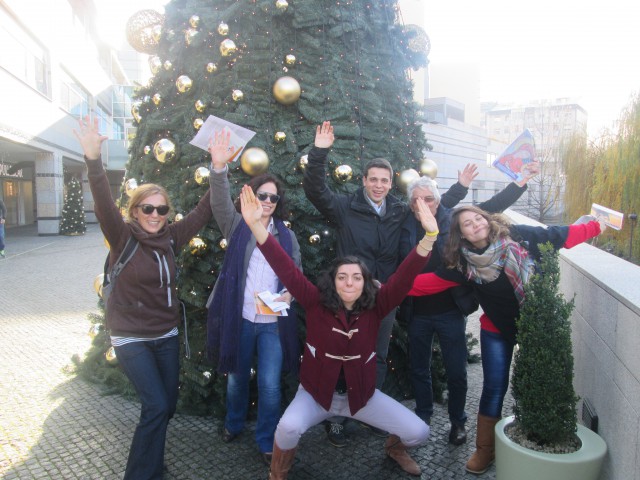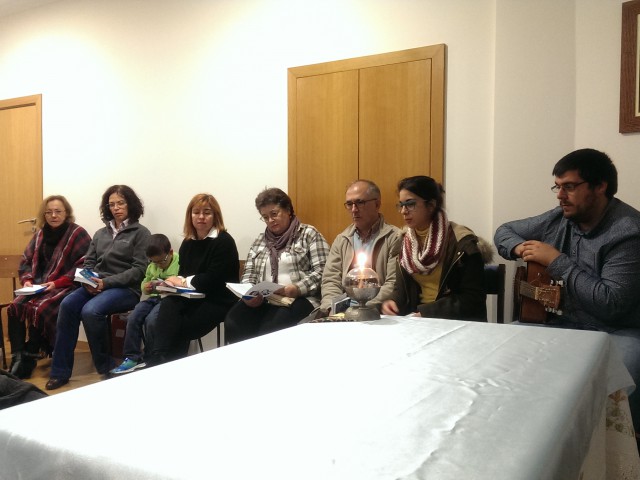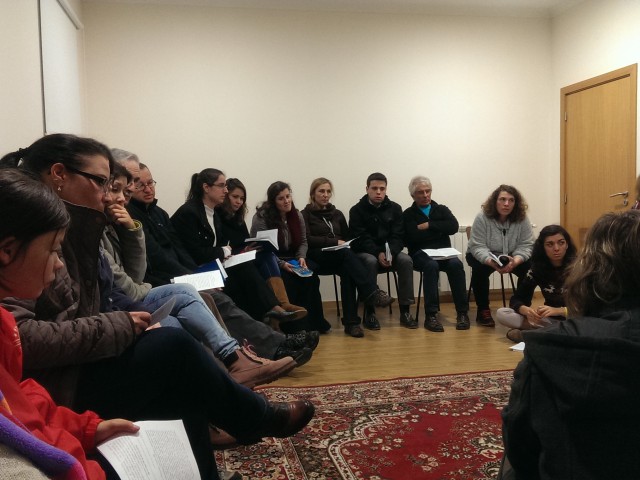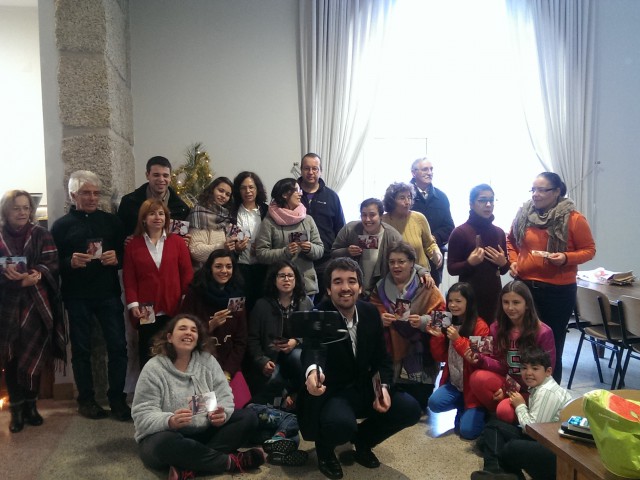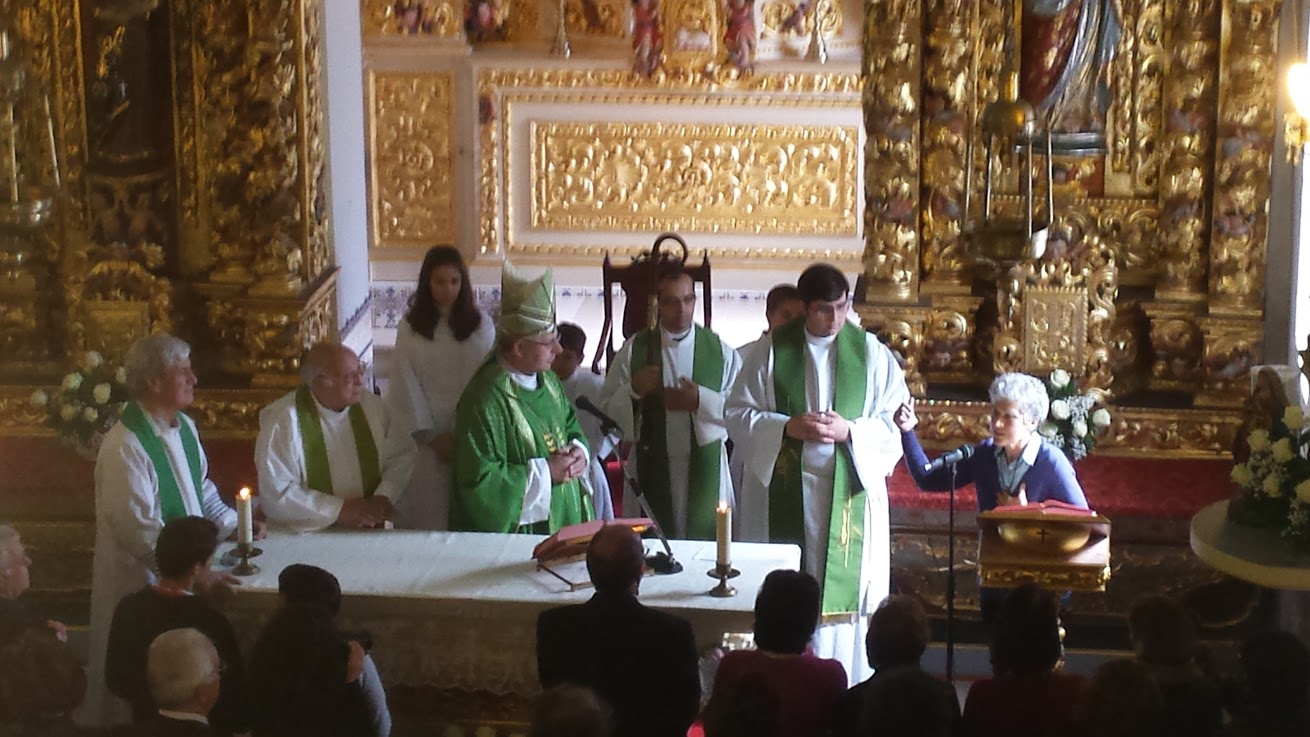Europe
Visit to the CLM group in Portugal
Before Christmas, I was invited by the CLM from Portugal to share with them their Christmas meeting.
This is an important meeting for the CLM group, where candidates and CLM meet to get formation, pray and celebrate Christmas together.
We met in the house of the MCCJ in Viseu. It was a weekend full of many important moments.
On arrival at Lisbon, they were waiting for me and we could dine in Pedro´s home before travel by car to Viseu. There we went slowly reaching the different participants from all places in Portugal. A moment of gathering with the CLM and meet all those who are preparing and discerning their missionary vocation.
We began with Mass in the morning where we also find Comboni fathers, brothers and sisters. During the morning, we talked with the group about the history and organization of CLM internationally. From the group’s questions we were entering in part of our history, of the decisions we have been taking to grow as a family and especially of how we have been doing reality, through the commitment and dedication of many, this missionary vocation.
The second part of the morning we used to enter into the commitments of Maia, see how we are trying to carry out and explain the support that from the Central Committee we tried to give to all groups to enable the challenges agreed.
The afternoon was spent touring the city of Viseu, giving hugs, thinking and praying about the year of mercy, doing missionary animation and talking to people about the challenge of mercy throw us this year by Pope Francisco. All this in an entertaining Gymkhana. All these experiences were able to share in the evening prayer.
We spent the night sharing the testimony of my beautiful years of Mozambique. A time to talk about vocation and missionary service.
On Sunday, we worked on practical aspects of the next CLM European assembly of this summer to be held in Portugal. A nice welcome challenge for the group of Portuguese candidates and CLM that will host the 5 European countries that give us appointment in August. Also a time to speak of missionary animation and finding the funds needed to carry out the mission.
At the end, the Eucharist served as conclusion and thanksgiving for this beautiful time.
I said nothing of the many Christmas sweets who joined us for the weekend, and the numerous conversations we were able to keep, a great part of the meeting. Of course, I encourage those who have doubts, touches off the couch and find which path to which the Lord calls us. In Portuguese CLM Group, you will find a good place to reflect, discern and be accompanied on this missionary service.
Christmas Greetings
On the way to the Mission – Sending Maria Augusta to CAR
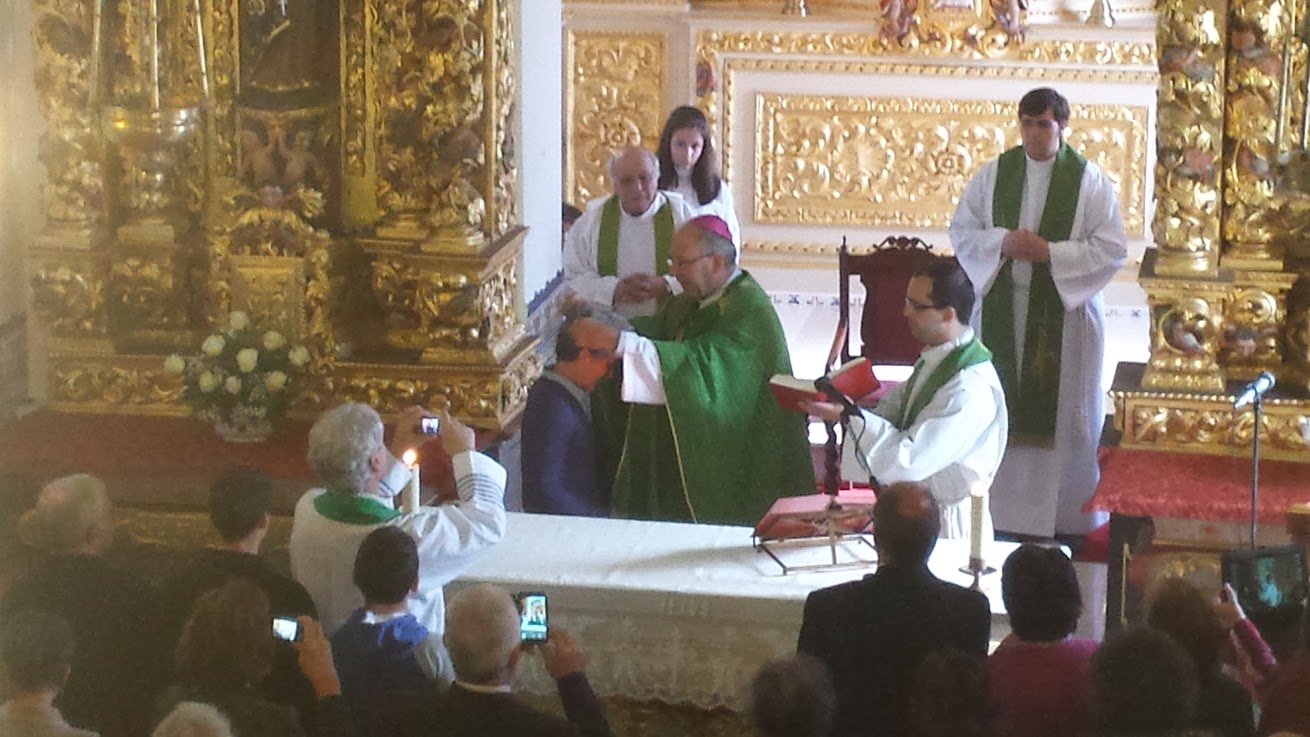 On October 25, echoing the message that brings the October missionary, celebrated around the world, we celebrated with joy and faith, the ceremony of sending of Maria Augusta Pires for the Central African Republic.
On October 25, echoing the message that brings the October missionary, celebrated around the world, we celebrated with joy and faith, the ceremony of sending of Maria Augusta Pires for the Central African Republic.
We thank God for a week of missionary animation in the schools of Dornelas do Zêzere and Pampilhosa, with great joy we share with the children our missionary experiences, while we gave testimony of Him who sends us always on mission.
In the four homes in the area, after a moment of prayer, was wonderful to see the faces of the elderly who opened into a big smile when we started singing and clapping… Everyone was very happy and promised to pray for missionaries every day.
On Saturday afternoon, in the Eucharist celebrated by three priests (Fr. João and Fr. Orlando, from these parishes and Father Dario of the Comboni Missionaries) in six parishes around Janeiro de Baixo (birthplace of Maria Augusta), we gave our missionary testimony as Comboni Lay Missionaries.
This missionary week culminated with a Mass in the parish church of Janeiro de Baixo, chaired by monsignor Virgilio, bishop of Coimbra, where we solemnly celebrated the sending of the CLM Maria Augusta Pires, that will leave next November 9 to the Mission of Mongoumba – CAR – where will make community with the CLM Elia Gomes that it is there since 2011.
In this so special and meaningful Eucharist, the church was full of Christians from the various parishes in the area who wanted to join us to pray for all missionaries. At the end of the Mass there were tears and emotion on the faces of almost everyone, moved by the words of Maria Augusta about the Mission. Many, many people came to say hello and to wish good luck for the mission and telling that they would pray for her.
After Mass Mgr. Virgilio greeted and spoke to all the people who wanted to be with him (and there were many!).
At the end of this day, I can only, thanks, thank the Bishop for his presence, his secretary Father Pedro, Father Dario, a Comboni missionary and the Fathers Juan and Orlando for the effort they put into making possible this missionary week. Everything went very well, so thank the Lord wholeheartedly.
Let your kingdom come
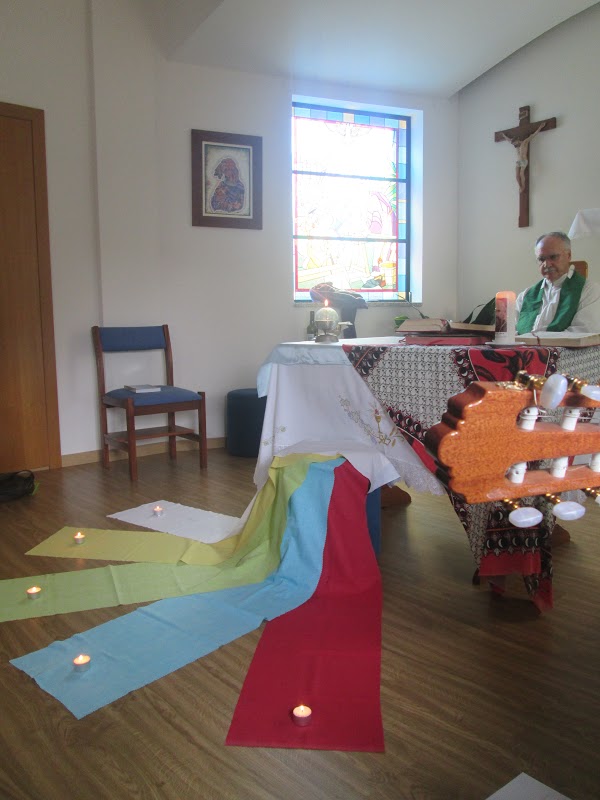 That rainy weekend from 9 to 11 October, we were welcomed in Viseu in the house of the Comboni Missionaries for the second formation meeting.
That rainy weekend from 9 to 11 October, we were welcomed in Viseu in the house of the Comboni Missionaries for the second formation meeting.
For me it was the first time I have experienced, and very successfully, this monthly walk I propose myself: a trip to Viseu, the warm welcome in the house of our missionary brothers, the deepening of faith and love for Jesus, St. Daniel Comboni and the neighbor.
In the previous meeting in Fatima, they had met for the first time the new candidates that are now beginning the process of formation, to know the CLM Movement. This encouraged me to decide, take inner awareness and the decision to start “now”.
Now we face a first issue as a question or challenge
– Kingdom of God: myth or reality? For this, the Comboni Missionary Secular Clara Carvalho guided us and helped deepen.
First, what is a myth? What is reality?
From common sense, if we think that reality is not only the body but also the mind, sensations, feelings and emotions, our relationship with God and his love are realities.
– Is the Kingdom of God something that already exists and is still under construction? Or is it something that may come here in many centuries? Nothing better than God’s Word to answers.
From a long list of references to biblical texts of the Old and New Testaments, we create two working groups, one to examine the question How is the kingdom of God?, the other to answer the question How can we enter in the Kingdom of God?
A kingdom for all, universal. For all time, which it cannot be destroyed. Which it is already among us (and in us), but does not seem visible. Unlike the kingdoms and republics of men, the kingdom of God is not “eat and drink”, but righteousness, peace and joy. It grows as the grain germinates on earth (even while the farmer sleeps) and fruits such as mustard seed, like yeast that makes the dough rise.
– What it is needed to “join” the kingdom of God?
(How to “enter” the Kingdom?, who “deserves” the Kingdom? … do not seem successful ways to place the question. Will not deserve all the men, leaving the wheat and the weeds grow next to each other until harvest?).
“Let the children come to me”.
“Blessed are the poor … … those who cry, the humble … the hungry … thirsty for justice … the merciful … the pure of heart … the peacemakers … those who are persecuted … “.
“You are the salt of the earth … the light of the world …”.
What a responsibility for us! And what an honor!
What is our role here and now, as subjects and servants of this kingdom? Where and who have yet to come? Believe in the Good News is accepting the mission to go and take the good news.
Leave everything and go without looking back. How this challenge calls us and scare us! How many of us are willing to do so? We trust in God that He providence the rest, how and when He called us.
On the second day, Clara shared with us her testimony of love for God and our brothers who suffer, in the various parts of the world where she was called. I retain, from her fiery words, the idea that “the mission is always action of God, we are only their collaborators”.
I cannot stop from evoke and emphasize the moments of prayer and Eucharistic celebration in which everyone participated and made me feel (as in the Upper Room of Jesus’ disciples) the presence of the Holy Spirit and the Comboni missionary spirit.
It was a very special meeting because, at the same time passed the annual meeting of the CLM of Portugal and we had the opportunity to live and share moments of prayer with the laity. And above all, for having the presence, quiet but determined, of Maria Augusta that will depart shortly for Mongoumba mission in the Central African Republic. Let us pray that the Lord will protect and bless the mission.
The rain that fell during the weekend, blessed by the Lord, make germinate seeds thrown to the ground and grow His harvest.
Mario Breda (Portugal)





